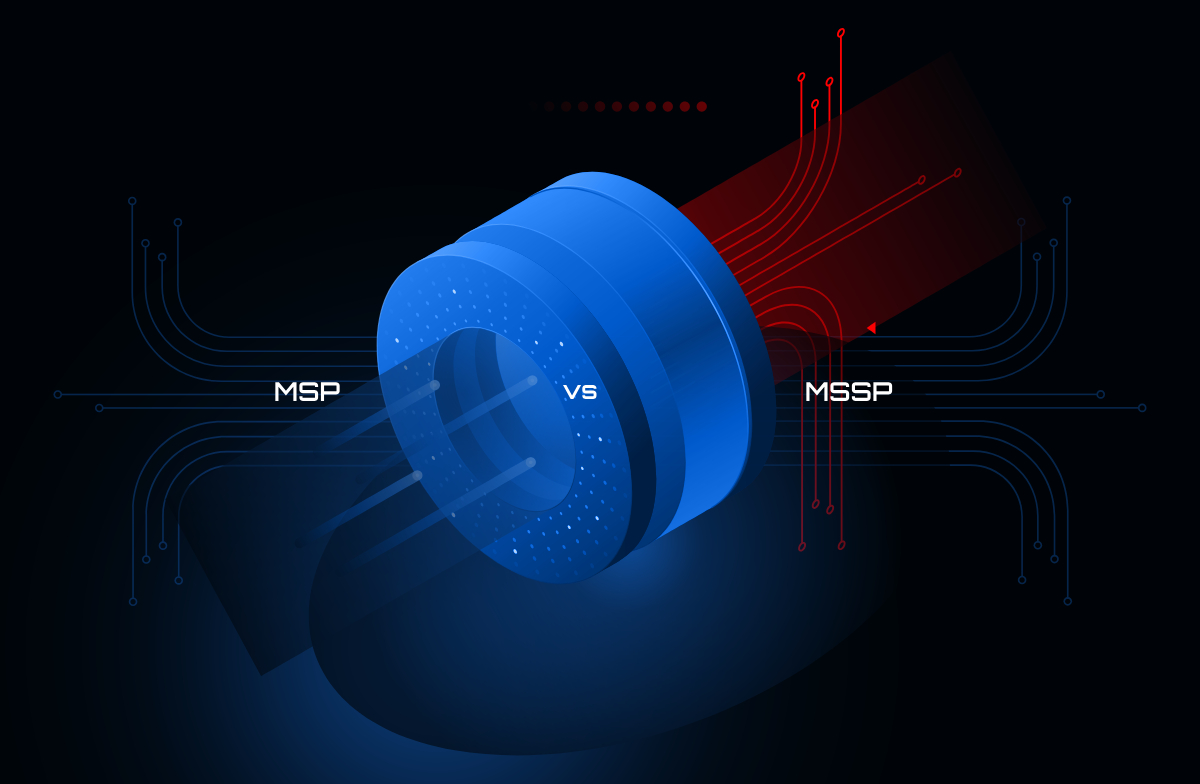
Distinguishing MSPs and MSSPs: Key Differences in Cybersecurity Services
In today’s digital age, businesses face an ever-increasing threat landscape, making cybersecurity a critical priority. Managed Service Providers (MSPs) and Managed Security Service Providers (MSSPs) play crucial roles in safeguarding businesses from cyber threats, each offering distinct services and expertise. Understanding the key differences between MSPs and MSSPs is essential for businesses to choose the right partner for their cybersecurity needs.
Managed Service Providers (MSPs)
MSPs provide comprehensive IT support services, encompassing a wide range of IT tasks, including:
Network management
Maintaining and optimizing network infrastructure for smooth operations
System administration
Installing, configuring, and managing software and hardware systems
Help desk support
Providing technical support to employees for IT-related issues
Data backup and recovery
Safeguarding business data and ensuring its availability in case of data loss
Basic security measures
Implementing firewalls, endpoint protection, and other basic security measures to protect against common threats
MSPs are ideal for businesses seeking overall IT management and support, ensuring their IT infrastructure operates smoothly and efficiently. They provide a holistic approach to IT, addressing general IT needs while incorporating basic security measures.
Managed Security Service Providers (MSSPs)
MSSPs specialize in providing advanced cybersecurity services, focusing on protecting businesses from sophisticated cyber threats. Their services encompass:
24/7 network monitoring
Continuously monitoring networks for suspicious activity and potential threats
Threat detection
Employing advanced tools and techniques to identify and analyze threats before they cause damage
Incident response
Providing rapid and effective response to security incidents, minimizing disruptions and protecting sensitive data
Compliance services
Ensuring adherence to relevant data privacy regulations and industry standards
MSSPs are particularly valuable for businesses that handle sensitive data, operate in highly regulated industries, or face a heightened risk of cyberattacks. They provide specialized expertise and advanced security tools to protect businesses from evolving cyber threats and maintain compliance with industry standards.
Collaboration for Comprehensive Coverage
Often, MSPs and MSSPs collaborate, providing businesses with a full spectrum of IT and security services. This partnership combines the strengths of both providers, offering businesses:
Efficient IT management
MSPs handle day-to-day IT tasks, ensuring smooth operations and resolving technical issues
Robust cybersecurity
MSSPs provide advanced security services, protecting against sophisticated cyberattacks
Comprehensive coverage
Businesses receive a holistic approach to IT and security, addressing both general IT needs and specific cybersecurity requirements
This collaboration is particularly beneficial for businesses seeking a unified approach to IT and security, ensuring both optimal IT performance and robust protection against cyber threats.
Conclusion
The choice between an MSP and an MSSP depends on the specific IT and security requirements of a business. For businesses seeking comprehensive IT management, an MSP is suitable, providing a wide range of IT services alongside basic security measures. For businesses prioritizing cybersecurity and facing heightened cyber threats, an MSSP is the preferred choice, offering advanced security services and specialized expertise.
By carefully considering their IT and security needs, businesses can choose the right partner – MSP, MSSP, or a combination of both – to safeguard their critical data, ensure business continuity, and maintain compliance with industry regulations.


